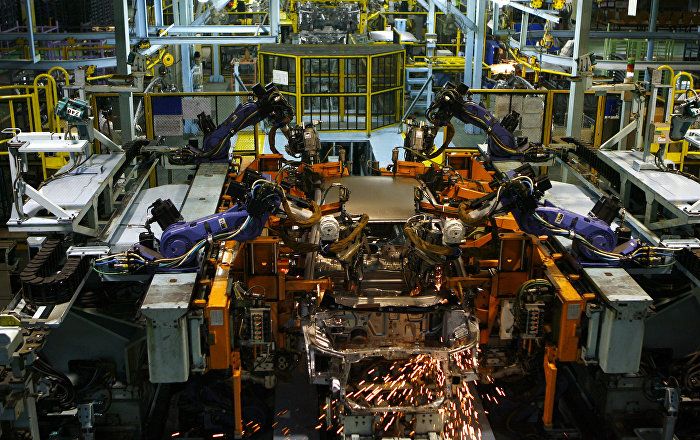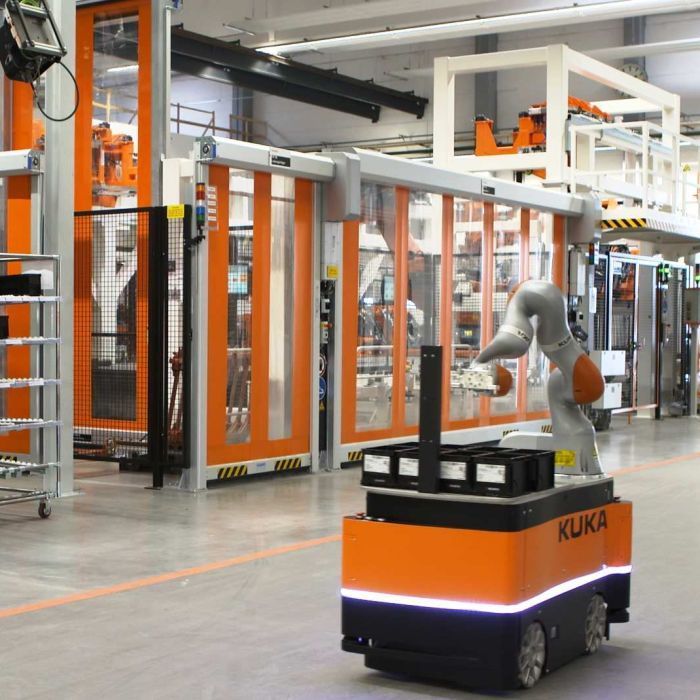A proposed government program to give every citizen a guaranteed income might make more sense than you think.



“Managers, hoping to avoid such jolts, spend too much time focusing on short-term performance. ”

Boy; wait until next month with China’s Quantum Launch.
By Munish Sharma.
Cyber has been one of the key discussion items during both Prime Minister Modi’s just concluded visit to the United States and President Xi Jinping’s visit to the US some nine months back. After Xi’s visit, China and the US signed a Cyber Agreement in October 2015. India and the US will ink a cyber agreement in the next sixty days. Notwithstanding these similarities, the intent of and expectations from these two agreements are fundamentally different; the former is an attempt to manage insecurity and the latter is a quest for security. An analysis of the joint statements issued at the end of the Modi and Xi visits to the US highlights the contrasting differences in India and China’s bilateral ties with the United States in the cyber realm.
China : US – Cyber and State Visit
Xi Jinping’s state visit to the US took place in the shadow of a massive cyber-attack on the Office of Personnel Management (December 2014), which compromised the fingerprint records of 5.6 million people and Social Security numbers and addresses of around 21 million former and current government employees. 1 The US has been accusing China of theft of intellectual property targeted against its defence industries, private sector and key governmental functions; amounting to economic espionage. Accusations in this regard go back to 2004, when a series of coordinated attacks – dubbed as Titan Rain – targeted the computer networks of Lockheed Martin, Sandia National Laboratories, Redstone Arsenal, and NASA. Cyber espionage featured in every high-level talk and security report.

India’s Central Bank Governor Raghuram Rajan has cautioned that robots are replacing human workers at an alarming rate, especially in the manufacturing sector, which could create political turmoil in emerging economies like India and Vietnam.
NEW DELHI (Sputnik) — Speaking at a book launching in Mumbai, Raghuram Rajan said:
“The emerging threat is: It is not the guy sitting in Bangalore but the robot next door which is going to take your job, and this creates enormous anxiety among the middle class. You can see this in the political dialogue that is taking place in the US as well as in the run-up to Brexit in Britain.”
(Bloomberg) — China is speeding up efforts to design and build a manned deep-sea platform to help it hunt for minerals in the South China Sea, one that may also serve a military purpose in the disputed waters.
Such an oceanic “space station” would be located as much as 3,000 meters (9,800 feet) below the surface, according to a recent Science Ministry presentation viewed by Bloomberg. The project was mentioned in China’s current five-year economic plan released in March and ranked number two on a list of the top 100 science and technology priorities.
Authorities recently examined the implementation of the project and decided to accelerate the process, according to the presentation.

China has been on a shopping tour of Germany, splurging on a string of key industrial companies in the past few weeks as Beijing moves to acquire the country’s fabled technological know-how and turn its own products into global brands.
But resistance to the offensive is growing following a 5 billion euro ($7.7 billion) bid last month by Chinese home appliance group Midea for leading German industrial robot maker Kuka.
The size of the play set alarm bells ringing across the business and political establishment of Europe’s biggest economy.

Here’s a short video and story from CCTV America (China’s Public TV in America) from my interview at the Augmented World Expo. I discuss robots, the Immortality Bus, and a Universal Basic Income:
CCTV America’s Mark Niu interviewed Zoltan Istvan, the founder of the Transhumanist Party and a 2016 candidate for the U.S. presidency. He asked Istvan one more question about his “immortality bus” and whether robots will take over our jobs.

Interesting twist; wonder how many tax dollars paid for the experts?
There is a bitter truth for economists, as well as professionals in other areas. Non-experts are typically better at forecasting future trends than experts.
It has been argued that economists should be historians rather than meteorologists and many years before the recent economic crash, John Kenneth Galbraith, the late Harvard economist, joked: “The only function of economic forecasting is to make astrology look respectable.”
Justin Wolfers, an economist, wrote last Friday in the New York Times on the May US jobs report which showed job creation falling to a net 38,000 in the month:

Activists pose on top of a giant poster reading “What would you do if your income was taken care of?”, setting the Guinness World Record for the largest poster ever printed, on May 14, 2016 in Plainpalais place in Geneva. A campaign group backing an unconditional minimum income in Switzerland set a Guinness Record for the world’s largest poster on May 14, seeking to rally support for the controversial idea ahead of a referendum next month. The record breaking 8,115 square metre (87,350 square feet) poster was made with a series of massive black plastic sheets, with the words “What would you do if your income was taken of” written in gold lettering. (FABRICE COFFRINI/AFP/Getty Images)
“Seven out of 10 voters fully expect another referendum in Switzerland, and the beginning of a necessary national conversation.”

A new wave of Chinese outbound investment has arrived in Israel, led by a younger generation of Chinese investors and entrepreneurs. This generation is more technology savvy than its predecessors, more focused on innovation, and will have a deep and lasting impact on Israel’s startup ecosystem.
Earlier waves of Chinese international investment were focused on manufacturing, natural resources and infrastructure. They were dominated by state-backed enterprises targeting large-scale projects and companies, often in Africa and frontier economies. Now, with outbound investment led by entrepreneurial investors who are digital natives, the emphasis is changing, and that is where Israel stands to benefit.
This generation is characterized by technology pioneers such as Alibaba, Baidu, Huawei, Kuang-Chi and Xiaomi, among the world’s most successful tech companies, on par with Western counterparts such as Amazon, Cisco and Samsung. What they see in Israel is an unmatched opportunity to learn and benefit from the unique Israeli technology ecosystem that is fast, dynamic, and lean.